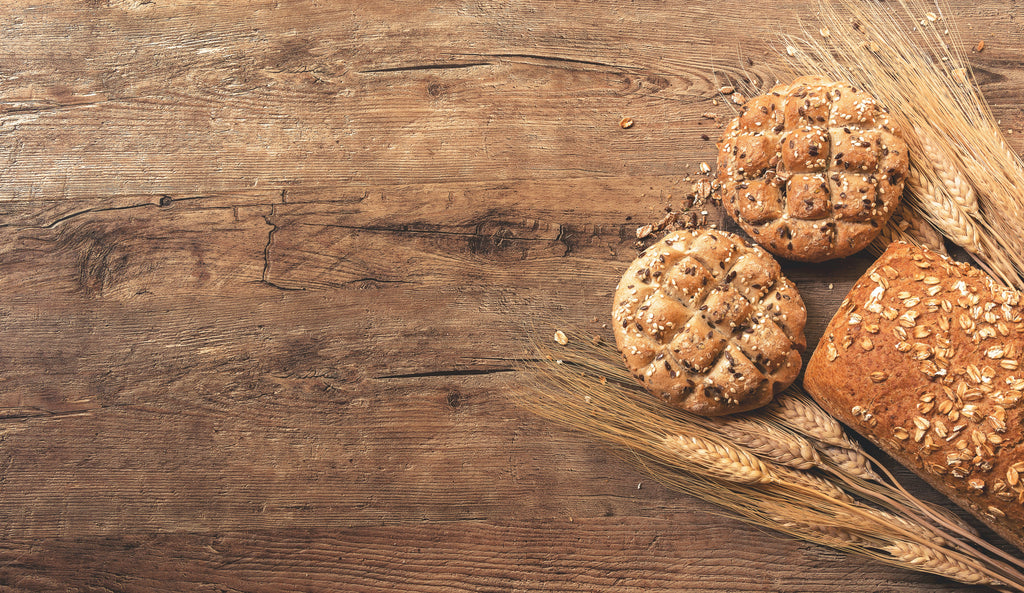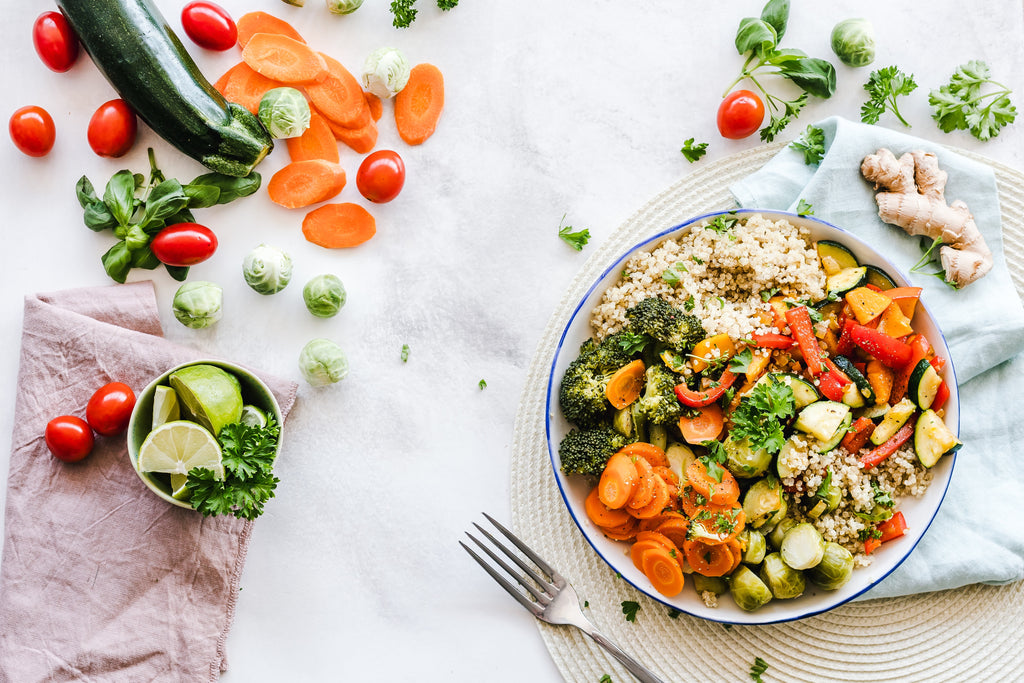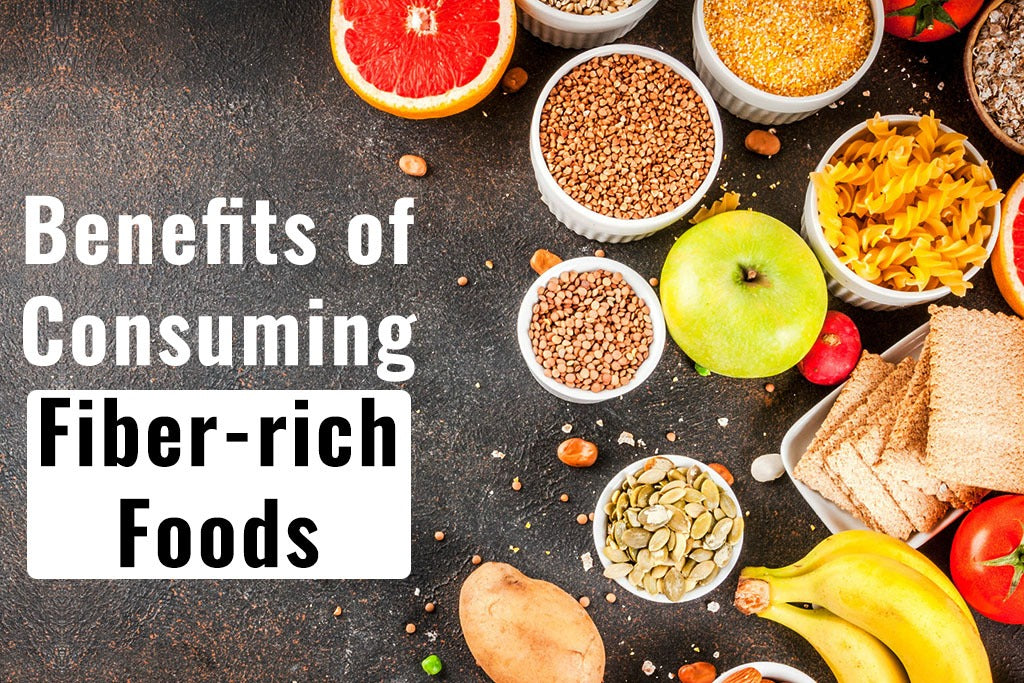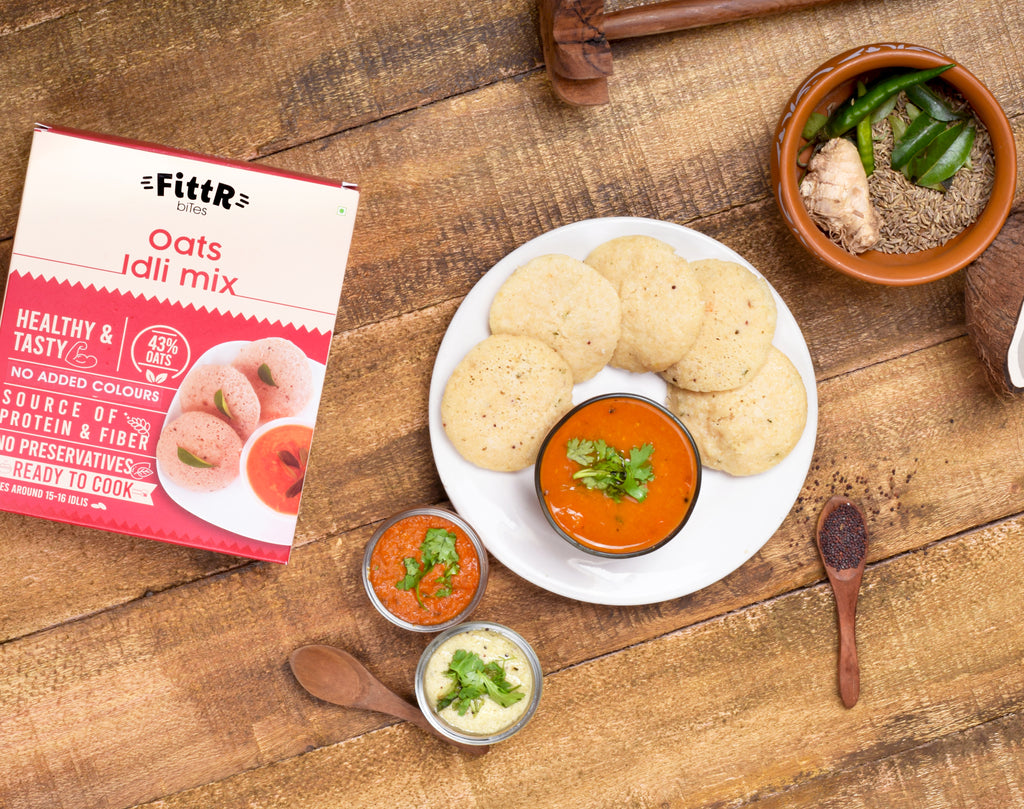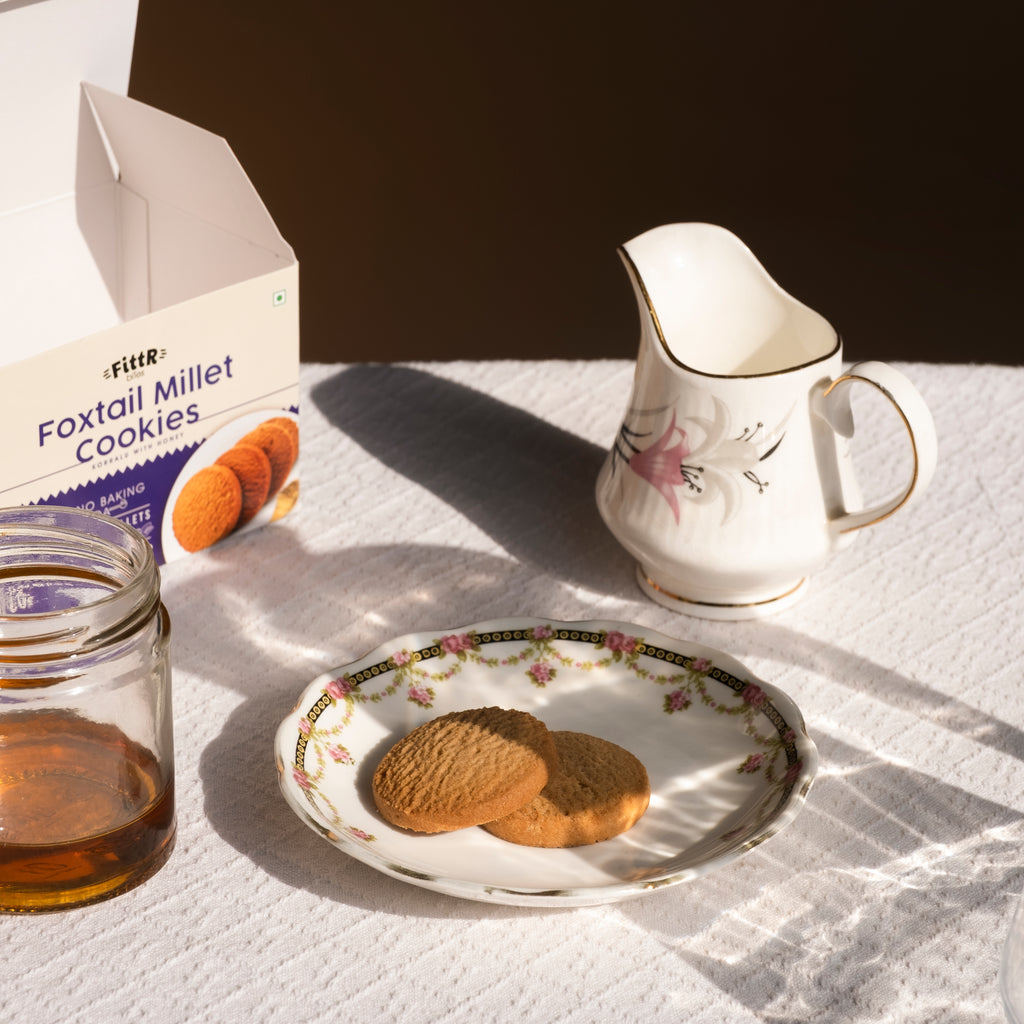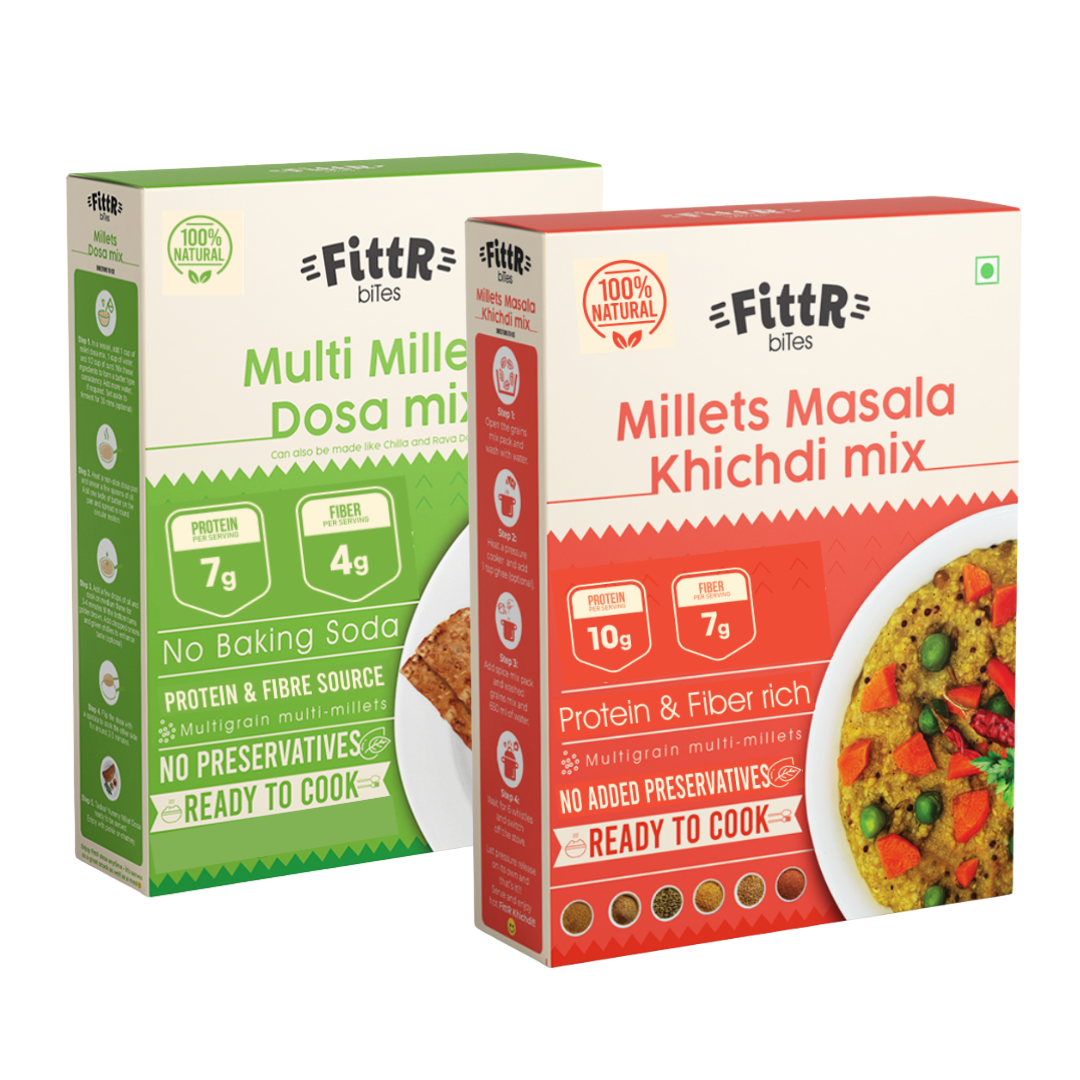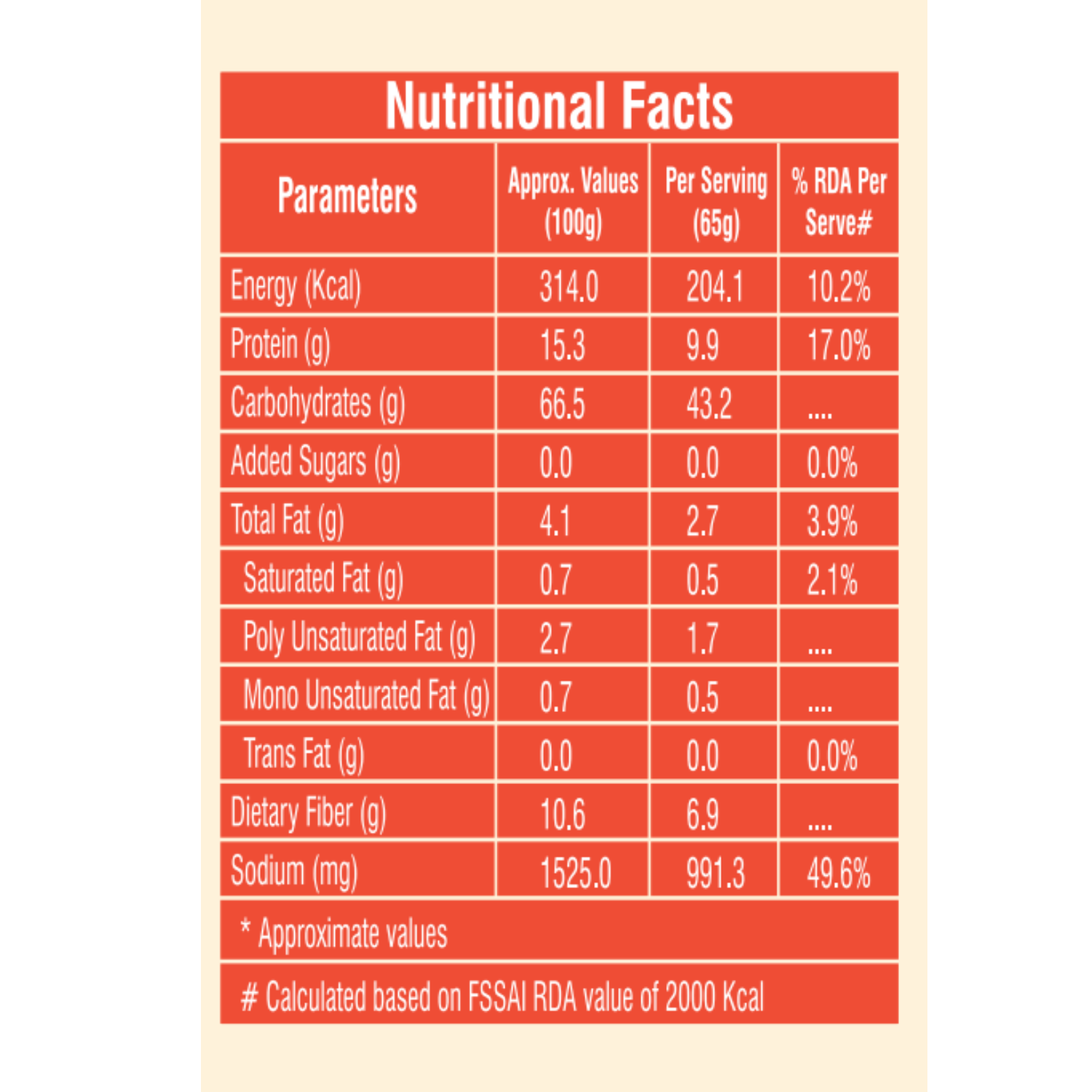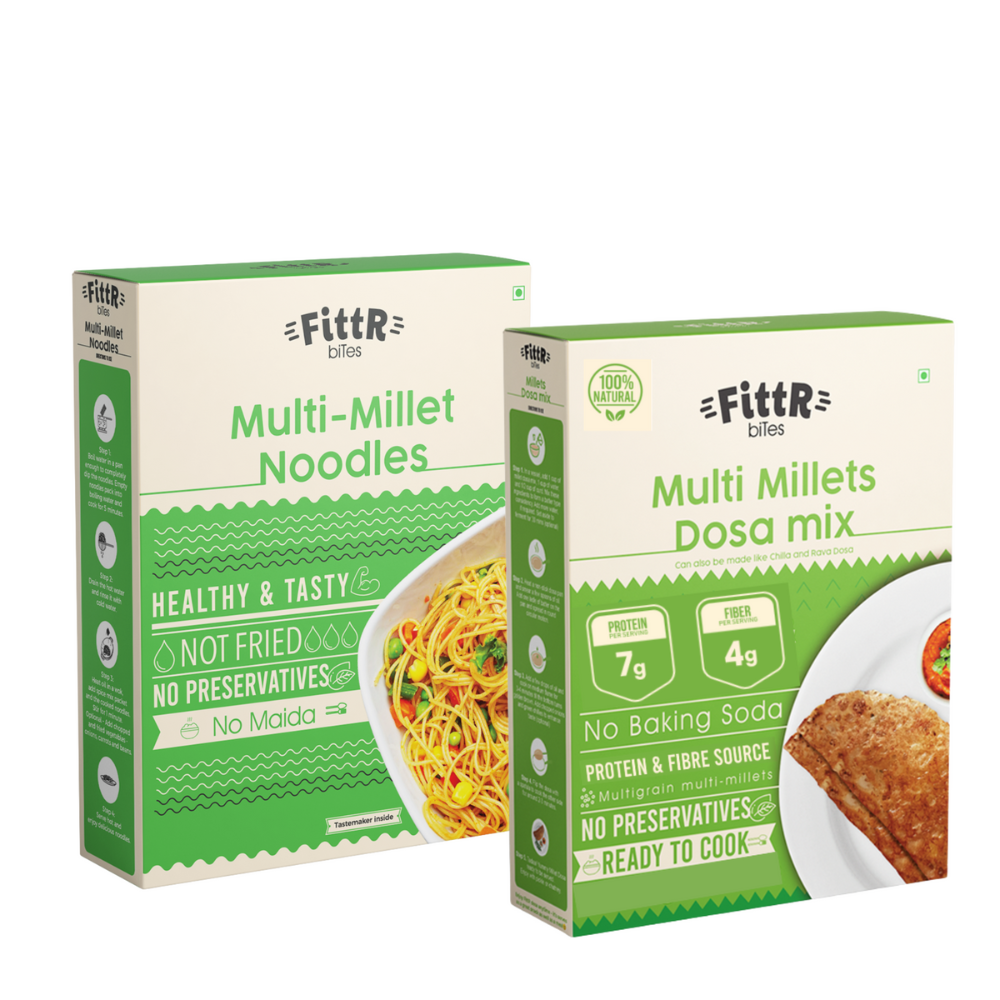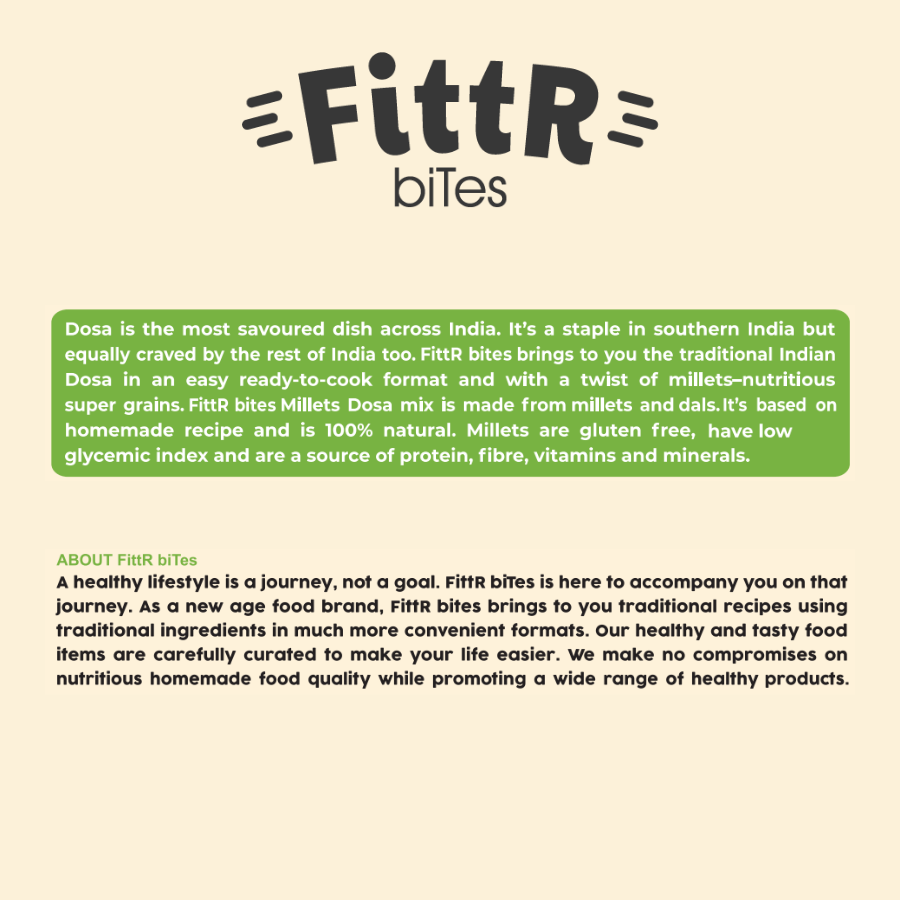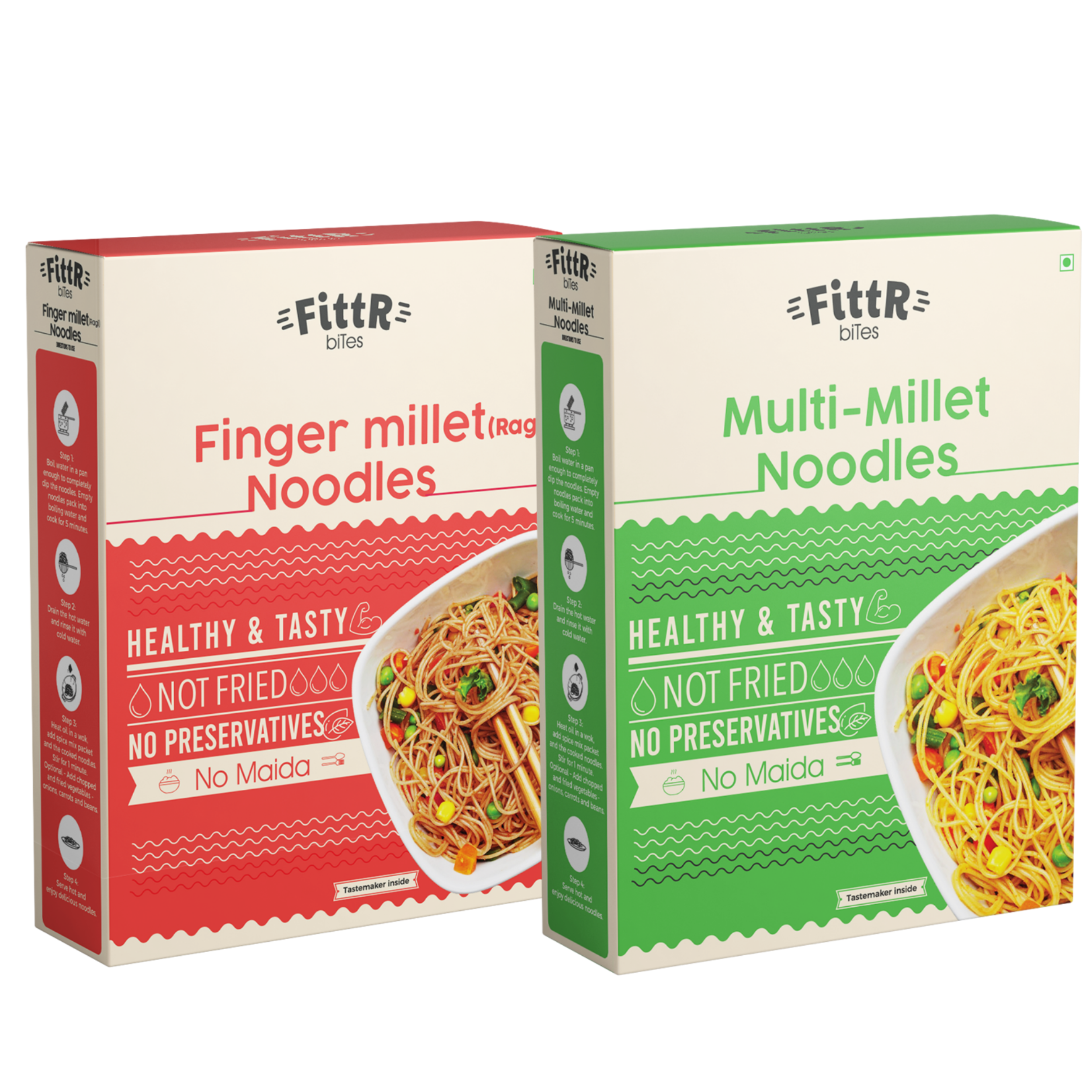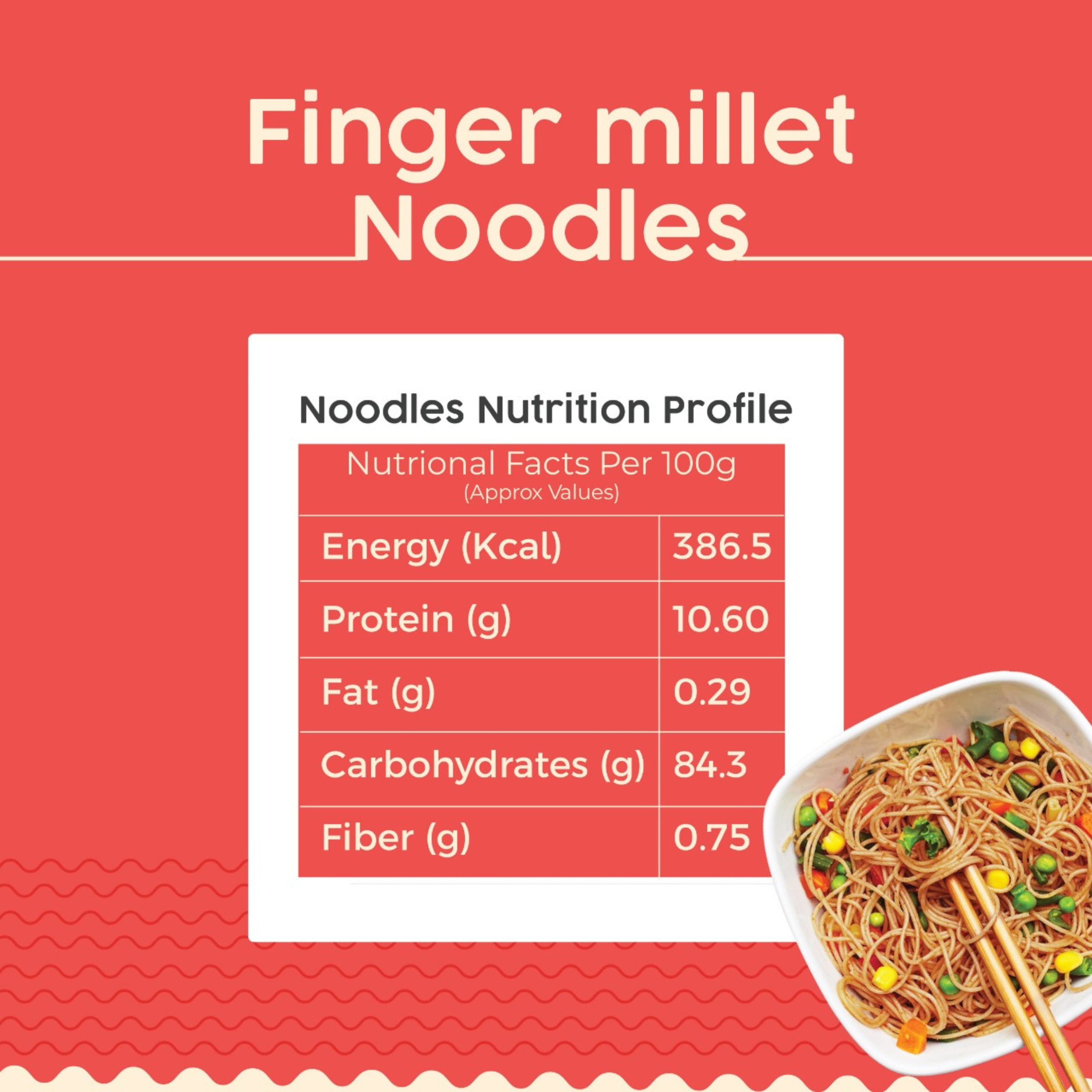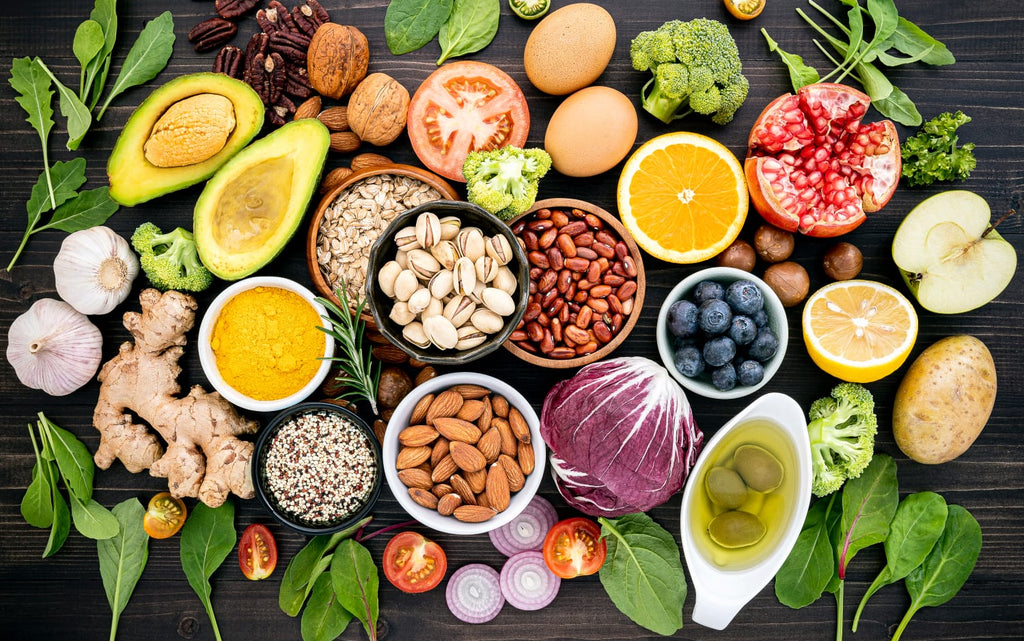
Everything You Need to Know About Fiber!

Include more fiber in your diet or eat more fiber-rich foods, you have probably heard it before. But do you know why fiber is so important for your health?
Dietary Fiber
Fiber has been recognized as a healthy food ingredient for centuries. It is mainly found in fruits, vegetables, whole grains, and legumes and is known for its ability to prevent and relieve constipation. Dietary fiber foods also offer other health benefits, such as helping maintain a healthy weight and reducing the risk of diabetes, heart disease, and some cancers.
FittR Bites offers fiber-rich millet-based instant health mixes where you can enjoy the benefits of nutritious yet high-fiber wholesome meals like dosa mix, idli mix and khichdi mix.
Here is a look at how much dietary fiber a person requires every day and some interesting points and benefits you should know about fiber.
What is Dietary Fiber?
Fiber, also known as fiber or bulk solids, contains parts of plant-based foods that the body cannot digest or absorb. Unlike other nutritional components such as fat, protein, and carbohydrates, which the body breaks down and absorbs, fiber is not digested by the body. It is passed into the intestine and absorbs water. It creates bulk and exerts pressure on the muscles in the intestine to push waste out of the body. Eating fiber rich food helps prevent constipation.
Fiber is classified as soluble (soluble in water) and insoluble (insoluble).
Soluble Fiber—This fiber dissolves in water and forms a gel-like material. It also helps to lower blood cholesterol and glucose levels. Soluble fiber is found in oats, peas, beans, apples, citrus fruits, carrots, barley, and psyllium.
Insoluble Fiber - Insoluble fiber promotes the movement of material through the digestive system and increases the amount of stool, it has advantages for those who struggle with constipation and irregular stools.
Whole wheat flour, beans, nuts wheat bran, and vegetables like cauliflower, potatoes, beans, pulses, lentils, nuts and seeds are good sources of insoluble fiber.
The amount of soluble and insoluble fiber varies with different plants and foods. Get greater health benefits by eating a variety of fiber-rich foods.
Benefits of Dietary Fiber -
- Normalizes bowel movements
Fiber increases the weight and size of the stool and makes it softer. If you have loose, watery stools, fiber helps solidify the stools because it absorbs water and adds mass to the stools. Bulky stools are easier to pass through and reduce the risk of constipation. Fiber helps in solidifying the stool as it absorbs water and adds bulk to the stool.
- Helps maintain bowel health
Studies have shown that a high-fiber diet can reduce the risk of bowel cancer. It can also reduce your risk of developing hemorrhoids, which are small pouches in the colon, and diverticular diseases.
Fiber can also ferment in the colon. Researchers are investigating whether this also plays a role in the prevention of bowel disease.
- Lowers Cholesterol Levels
Soluble fiber found in beans, oats, flaxseeds, and oatmeal can help lower the total cholesterol and the cholesterol level of low-density (bad) lipoproteins. Studies have shown that fiber-rich foods have other health benefits for the heart, such as lowering blood pressure and inflammation.
- Aids in Controlling Blood Sugar Levels
In people with diabetes, fiber, especially soluble fiber, can slow down the absorption of sugar and help to improve blood sugar levels. A healthy diet with insoluble fiber reduces the risk of developing type 2 diabetes.
- Helps in Achieving a healthy weight
High-fiber foods are less energy-dense, meaning they contain fewer calories in the same amount of food. They also tend to be more filling than low-fiber foods, so you are more likely to eat less and stay full for longer.
Best Fiber Choices
Refined and processed foods such as canned fruit and vegetables, meat-free juices, white bread and pasta, and cereals without whole grains are low in fiber. If you don't eat enough fiber every day, you need to boost your intake.
Here are some good choices of fiber
- Fruits
- Vegetables
- Whole-grain products
- Nuts & Seeds
- Beans, peas, and legumes


